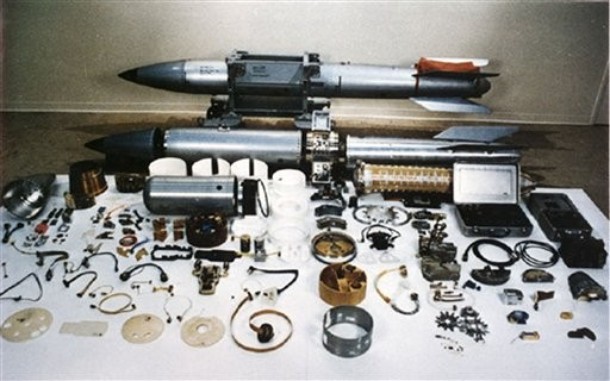
From the European Leadership Network: [It] is our firm view that at the Lisbon summit on 19 to 20 November 2010 NATO Leaders should include text in the new strategic concept that states the following:
- NATO will promote both nuclear and conventional arms control and disarmament based on greater international transparency and accountability.
- There is an urgent need for reducing the roles and risks of nuclear weapons in security policies globally. NATO is prepared to make a significant contribution to that process.
- The fundamental role of nuclear weapons is to deter nuclear attack.
- Non-strategic nuclear weapons have lost their original role of deterring massive conventional superiority. Therefore, NATO is willing to support a further reduction and consolidation of U.S. non-strategic nuclear weapons in Europe.
- NATO intends to engage Russia in a process strengthening all-European security from Vancouver to Vladivostok. This should include further dialogue on:
- a much wider and verifiable reduction and consolidation of non-strategic nuclear weapons across the whole of Europe, leading to their eventual elimination;
- the retention and updating of the CFE treaty and Russia’s return to this treaty regime;
- A constructive role for the NATO-Russia Council to support and work towards binding agreements on the role of missile defense in Europe. …
Consequently, we believe a full, inclusive and transparent review of NATO nuclear policy is not only necessary but should address the following questions as a matter of urgent priority:
- What can NATO do to help establish safe conditions for the adoption of deterring nuclear attack as the sole purpose for its nuclear weapons, consistent with the declaratory policy goal as stated in the US NPR and with our suggested ambition to reduce the number and roles of nuclear weapons in the NATO arsenal?
- Are NATO’s current nuclear arrangements the only available and credible option for providing European allies with reassurance against nuclear threats? What alternative options are available that could provide this reassurance while also allowing NATO to do more to support international moves toward multilateral nuclear disarmament? What might the risks and benefits of each of these alternatives be?
- What alternatives to current nuclear burden-sharing arrangements might be available, if any, that could both maintain the political cohesion of the alliance and maintain the principle that nuclear risks and burdens are shared across the alliance?
- How can NATO best maximise the security of nuclear weapons on its own territory?
- What would the implications of any changes to NATO nuclear policy be for NATO relations with Russia, approaches to reassurance on Article V commitments within the alliance, and consideration of issues such as missile defence and conventional forces in Europe?
Excerpts from statement on NATO Nuclear Policy issued by 36 members of the European Leadership Network for Multilateral Nuclear Disarmament and Non-Proliferation. (photo: U.S. Department of Defense/AP)
Image: ap%209%2029%2010%20a%20B-61%20nuclear%20bomb.jpg
